Zoho Solutions
Techvaria puts years of Zoho expertise to work for businesses of all sizes.
Our experts are ready to help you navigate the vast landscape of Zoho offerings available to you and your business.
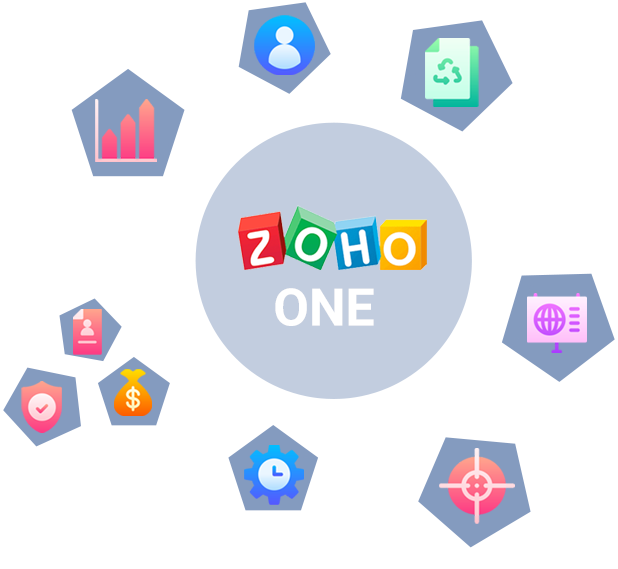
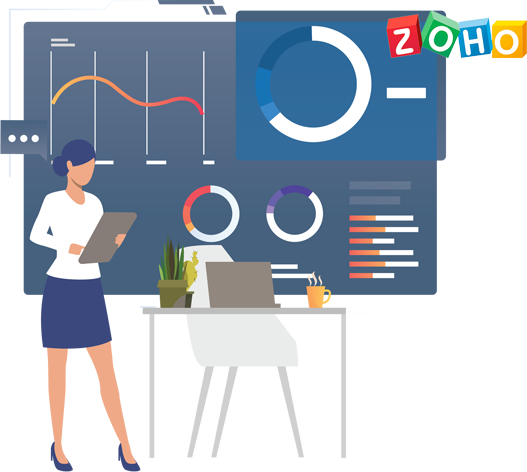
Zoho Consulting
Our experts are ready to help you navigate the vast landscape of Zoho offerings available to you and your business. We are made up of technologists who are expert in ERP and CRM strategies. We bring 8 years
of implementation experience to enable smooth Zoho adoption of Zoho Applications for your business. We guide you through the entire process from ideation to implementation, while leveraging Zoho to connect with your business users and customers like never before.
Project Approach and implementation methodology
Our Implementation Methodology is a straightforward, pragmatic and proven five-phase approach for achieving success. The Methodology has been utilized and continuously improved on each of the projects that we successfully brought to completion.
Project Initiation
Solution Design
Application Configuration
Testing & Preparation
Deployment
Support
The following section describes the phases and typical high-level activities of the implementation methodology used by us. The specific details and tasks for each project may vary from client to client, so the description of the phases and sub-phases are at a conceptual level.
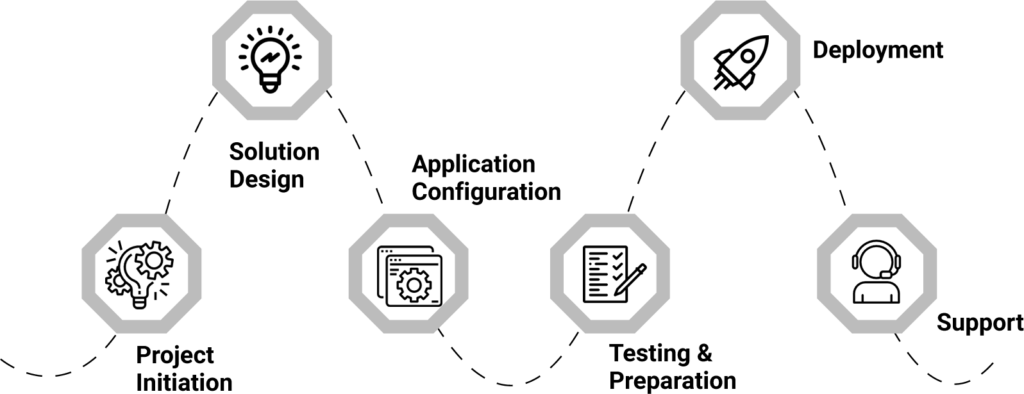
Program Initiation
The following are the components of the Program Initiation Phase
The project team will define the format of the requirements gathering sessions, the documentation that will be produced, and the overall process. Once business requirements are defined for each area, they are reviewed by Techvaria consultants. A determination is made on whether the chosen solution can address all the business requirements. In case there are some processes which cannot be a straight fit then, the requirement is considered as a gap and then appropriate solution interms of workaround, customization or change management is suggested.
Program Kickoff
Software Licensing and Environment Setup
Project Planning
Requirements Definition & Design

Solution Design
During this phase, the project is focused on analyzing the requirements and any gaps identified, documented business processes, all data and integration requirements, and breaking them down into components to create a system design. The workflow and supporting data and system requirements are reviewed for each group of proposed system users. These requirements are mapped into application screen flows and layout designs, which are then reviewed with key user representatives/SMEs. Supporting data, reporting, system interfaces, and technical requirements are reviewed based on the proposed application configurations and are then designed and documented.
If gaps are identified, Techvaria consultants present alternatives to address each gap. For example, they could
Suggest a business process change.
Formulate a workaround, or
Recommend a technical solution or customization.
Techvaria team will recommend one of the solutions for each gap. These will be reviewed with the project team and stakeholders, who will decide upon the solution.
Application Configuration
During the Application configuration phase, the Techvaria implementation team will take the information gathered during the design sessions and begin configuring the new instance. The objectives of this stage are to develop the software solution configurations, setup the system parameters according to design specifications, and integrate system with all other required third party applications to produce a demonstrable business solution. As the project team is performing the configurations, basic testing will be done to validate functionality within the individual modules or workflows. An iterative process will begin with each new setup scenario where super users will be brought in as needed to validate that the functionality is meeting all of the identified requirements.
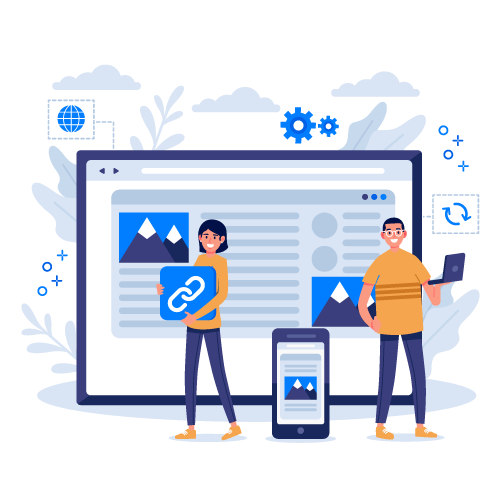
Testing & Preparation
During the Testing and Preparation stage, the major objectives are to verify the system readiness against business features and performance requirements and to obtain system acceptance from the business sponsor before the production rollout. Comprehensive unit and integration testing will be conducted. End-users are trained and the technical team completes any final configurations and modifications of the production environment and conversion of data.
Unit Testing:
Unit testing is performed in a non-production version of the ERP solution that the client users and Subject Matter Experts (SMEs) will be able to access and test. During Unit Testing, core team members and SMEs will perform scripted processes in the new software environment to ensure that the business requirements defined and configured in the previous phase are being met as planned.
Unit Test scripts, containing instructions for performing transactions and functions in newly configured system in order to demonstrate the required business functionality are created and finalized by the collective team.
Structured execution of the test scripts by the core team members and SMEs is managed and facilitated by The Techvaria consultants. The results of this testing are recorded. As time permits, discrepancies, or when the system produces a different result than expected, are addressed. The exit criteria for this phase will be a signed Unit Testing Acceptance Certificate.
Integration Testing:
In Integration Testing, the project team members will perform scripted test processes in the test environment to ensure that the business requirements defined in the previous phases are being met as planned. The main difference between Integration Testing and Unit Testing is the entire system will be tested rather than specific modules or functions. All workflows, cross-functional business processes, and integrations will be tested. End-to-end business processes will be tested and approved prior to the completion of this stage. The exit criteria for this phase will be a signed Integration Testing Acceptance Certificate.
User Acceptance Testing (UAT):
In UAT, super-users/SMEs and other users will execute scripted test processes in the newly configured system to ensure that all defined and agreed-upon business requirements are being met as planned. The main difference between UAT and the other testing phases is that the user community will see the completed, comprehensive solution at this point; all solution work should be completed and UAT should be a preview of production. All test scripts (and therefore all requirements) are tested to ensure that any previous changes to the system did not produce unexpected results in other areas. The exit criteria for this phase will be a signed User Acceptance Testing Acceptance Certificate.
Training:
We strongly advocate “Train the Trainer” approach. We will train appropriate client personnel who will then conduct training of the user community.
Training of the core team will be performed as one-on-one training with The Techvaria consultants during configuration and Unit testing. The core team member will perform the training of the super-users/SMEs during Integration Testing and UAT but The Techvaria team will assist as necessary. This will be a combination of informal side-by-side training and classroom training as required. End-user training is formal classroom training facilitated by the client.
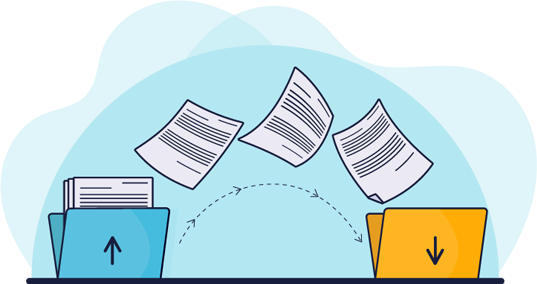
Deployment
During Deployment, the solution is delivered to the client and all of the logistical preparations are made for the solution to be used by the end-users in the execution of their job functions. A pre-defined Go/No-Go process and list will be established and reviewed for sign-off. After go-live, any cleanup or monitoring of the solution in production is done.
Preparations are made for “go live” or the point where end-users enter transactions in the system in the course of their day-to-day work. These preparations could include activities such as preparing data for migrating from legacy systems by creating extract files. It would also include identifying new users that need to be set up in system.
Support
In the Support phase, there is a defined period of support provided by Techvaria. This does not include the addition of new functionality. The main goal of the application support period is that the day-to-day business operations of the client are not impacted by the solution.


Project Closeout
We will complete the final billing, release the consultants from the project, and archive the project artifacts. The Project Closeout Meeting and the Execution of Final System Acceptance will complete the project.
GET STARTED
Want to bring your idea to life together with our ambitious and skilled Consulting team



